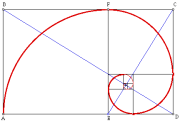Is that anti-spyware program really spyware?
Over the 200+ articles I have written, I have tried to help educate people about the dangers we face in this era of ‘always-on’ Internet connections — such as hackers, cyber-criminals, phishing, and malware — and offered advice on how to get protected.
Yesterday, and continuing on into today, I have been assisting a client in trying to rid their machine of malware (trojans, worms, etc.) infection and to do so short of wiping their drive and starting over. Folks, you do not want to let this stuff onto your machine. Part of this person’s problem was they were tricked into installing a rogue anti-spyware program.. which in fact infected their machine. So I have decided that I will re-post my article on such applications, in case you missed it the first time. Originally titled “25 years since the first virus”, it appeared 9/12/07–
Time marches on.. twenty five years ago a High School freshman wrote the first “true” virus, and distributed it to his friends (via floppy disk) as a practical joke. That the “Elk Cloner” virus was harmless, and the young man went on to become a heavyweight in the computing industry, allows us to bear him no ill will. If it hadn’t have been him, it would’ve been someone else; there were “experimental” viruses written before his.
Those of you who have been around for a while may remember the evolution of viruses: from a harmless prank to system destroyers to profit-centric spyware. Security experts generally agree to the important historical malware events as being as follows: Elk Cloner, 1982; Brain, 1986; Morris, 1988; Melissa, 1999; Love Bug, 2000 (aka ILOVEYOU); Code Red, 2001; Blaster, 2003; and Sasser, 2004. (For a much more complete history of viruses, worms, and trojans, click here.) (Today, we have the Storm worm in the news.)
Today, the business of keeping data and communications safe from viruses and other malware is a $38 billion dollar industry.. and growing. Yes, a lot has changed in twenty five years: I have gray in my hair now, for one.
Tip of the day: Beware of “rogue” anti-spyware programs. There is so much money to be made off of stealing corporate data, identities, and sending spam that the malware writers have created spyware that claims to prevent spyware. You think you’re installing a spyware remover, but you’re not. You are actually installing their malware.
Some claim to give you an anti-spyware scan for free, and they “discover” a critical infection (again bogus) which, if you buy the “Professional” version, they’ll clean up for you. Please, Dear Reader, never fall for this. The quality anti-spyware programs are well-known and are routinely rated and compared by reputable sources like PC World and PC Magazine and C/Net.
[Note: there is an excellent list of know rogue anti-spyware apps posted on Spyware Warrior.]
One such program is currently sending a few people my way for assistance, named Spy Shredder. There is plenty about this nasty on the Internet. Most reputable anti-spyware utilities will detect and remove this (see today’s free link as well) item. The people infected with it (who contacted me) had no protections except an antivirus, and it was kind of hard to feel sorry for them. There is no excuse, in this day and age, to not be running Internet Security programs. Full Internet Security Suites are easy to find that are free after rebate, after all.
For those of you looking here to find out how to remove Spy Shredder, I suggest you click on the word “anti-spyware” in my Tag Cloud, download and run the anti-spyware programs I have suggested in the “Today’s free links” area (always at the bottom of Tech-for Everyone articles), as well as today’s — do not try the manual removal methods found at other websites unless you’re a skilled and experienced Registry editor.
[Update 4/5/08: Bill Mullins has just posted a wonderful article on rogue anti-spyware programs which includes a list of known villians, and a tool useful for removing them (prevention is better, but..). http://billmullins.wordpress.com/2008/04/05/don%e2%80%99t-download-antispywaremaster-%e2%80%93-rogue-security-software/. I also recommend looking at his How Fake/Rogue Software Affects Real People]
Today’s free link: SpyCatcher Express from Tenebril. From website:
Copyright 2007 © Tech Paul, All Right Reserved
| Share this post : |

 Subscribe to Tech--for Everyone by Email
Subscribe to Tech--for Everyone by Email












Thanks for the great tips and advice.
LikeLike
i’m currently using spyzooka and it’s been working very fine ever since i bought mine.
LikeLike
Lathrop,
I am glad that you are using an anti-spyware program, however, I do not regard Spyzooka as a recommendable product.
I recommend Spyware Doctor, Spyware Terminator, and Super Antispyware, in that order — and they’re free.
LikeLike
Hi techpaul, why dont you recommended spyzooka as it is paid anti spyware. Are you the free anti spyware such as Spyware Doctor, Super Antispyware etc are better than paid anti spyware?
Anywany, this is great artices. Thanks.
LikeLike
fuzang,
The fact that something is for-pay simply means that it won’t appear in my “today’s free download” area. I don’t pan something just because it’s not free.
Also, I don’t necessarily ‘favor’ something just because it has a recognized name brand.
In the case of anti-malware apps, I look at independent reviews from labs that do nothing but test these products; my own personal testing; reviews in Computer World, PC Magazine, PC World, Smart Computing, SC Magazine, Tech Republic; and discuss results/opinions with my fellow technicians.
Bottom line — detection and removal rates, ease of use, and resource demands.
Spyzooka is either not mentioned at all, or doesn’t make the “top products” lists.
LikeLike
what if i clicked on the link but didn’t buy the anti-spyware program?
LikeLike
amanda,
The main thing a “hacker” (cybercriminal) want to get you to do is click — whether that be on a poisoned URL, an emailed ‘attachment’, or a ‘pop open’ window.
I won’t say “for sure” without looking at your machine, but the odds are tremendous the damage has already been done, and you have (most likely) been infected with who knows what — keystroke loggers? backdoors? spam mailers? banking trojans? All of the above?
Probably has.
Buy not buying the program, you simply did not hand them your credit card.
Which is good the only good news.
But you need to start a malware cleanup and removal process ASAP. If you are not experienced, I believe you will be best helped by hiring a pro.
(Such as myself (shameless plug) http://aplusca.com.)
You can read this, and see how you feel about self-help: How To Cure A Malware Infection.
LikeLike